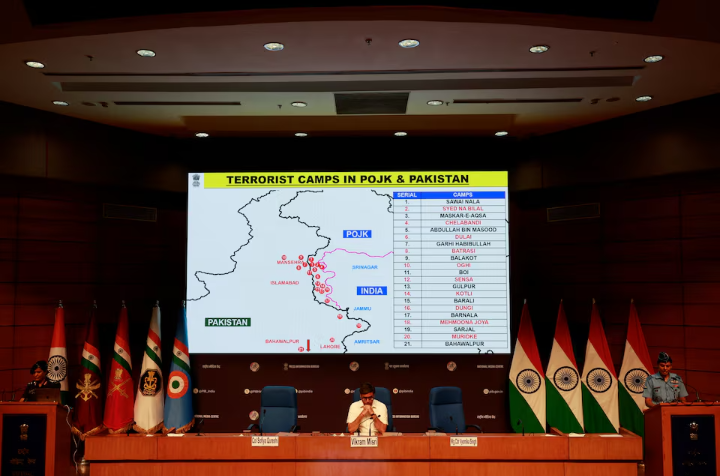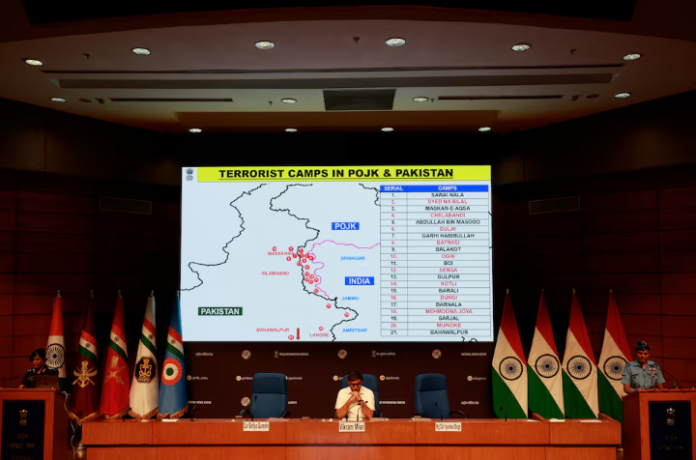Tensions between India and Pakistan have surged to their highest level in decades after India launched a series of powerful airstrikes on what it described as terrorist bases inside Pakistan and Pakistani-controlled Kashmir. The action, carried out in the early hours of Wednesday, was in response to a brutal attack on Hindu tourists last month in Indian-administered Kashmir that left 26 people dead.
Labelled “Operation Sindoor,” the Indian military said its jets struck nine terrorist facilities linked to militant groups Jaish-e-Mohammed and Lashkar-e-Taiba. Four of the targets were in Pakistan’s Punjab province—the first such strikes in the region since the 1971 India-Pakistan war—while the remaining five were in Pakistani Kashmir. Indian officials described the sites as recruitment hubs, weapons depots, and training centres for Islamist militants.
India’s Foreign Secretary Vikram Misri said the strikes were pre-emptive and necessary, citing intelligence that indicated more attacks on Indian soil were imminent. “We executed precision strikes using carefully selected warheads to avoid civilian casualties,” he stated during a press briefing.
Pakistan, however, painted a different picture. Officials in Islamabad accused India of violating its sovereignty and said the attacks targeted civilian infrastructure, including a mosque, killing at least 26 civilians and injuring dozens more. In retaliation, Pakistan claimed it shot down five Indian fighter jets and several drones—though India has not confirmed these losses.
In the midst of the chaos, cross-border shelling erupted, killing at least 10 civilians and wounding over 40 in Indian-administered Kashmir. Pakistan also reported casualties on its side. The heavy gunfire, residents said, lasted through the night and forced many to flee into the hills.
This latest exchange marks the most serious military confrontation between the two nuclear-armed rivals in over 20 years. Both countries have fought multiple wars since their independence in 1947, mostly over the disputed region of Kashmir.

Reactions poured in globally. The United Nations, China, and Russia urged both nations to exercise military restraint. Meanwhile, U.S. President Donald Trump called the situation “a shame” and said he hoped for a quick resolution. Secretary of State Marco Rubio reached out to both countries’ national security advisers to maintain dialogue and prevent escalation.
Back home, public sentiment ran high. Many Indians praised the strikes as a bold step against terrorism. “This is the decisive action we’ve been waiting for,” said one Delhi resident. On the Pakistani side, sentiments of defiance and sorrow echoed. “Pakistan will not be bullied. We have every right to defend ourselves,” one businessman in Lahore said.
Markets reacted sharply to the conflict. Indian and Pakistani stock indexes dropped initially but later stabilized. Airlines including IndiGo, Air India, and Qatar Airways cancelled flights in the affected zones as airspaces were temporarily closed.
With the world watching, the fear now is whether the situation will de-escalate—or ignite a larger conflict.



